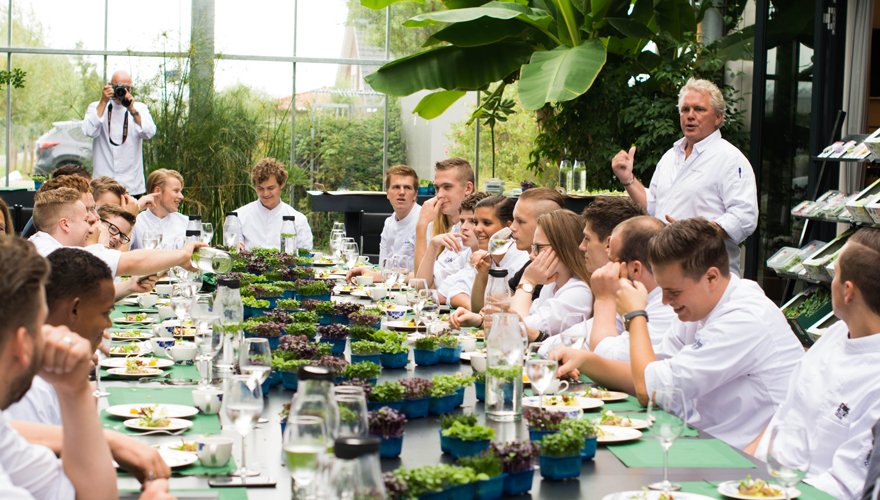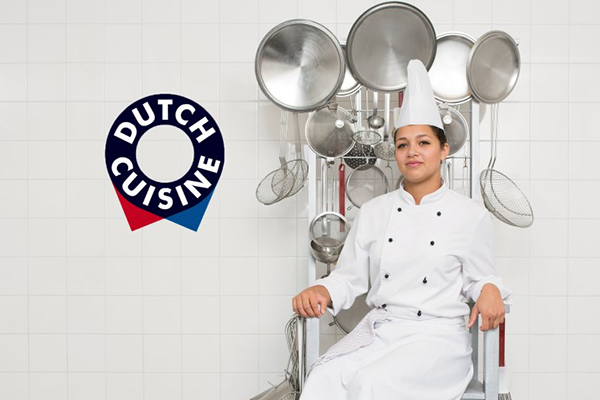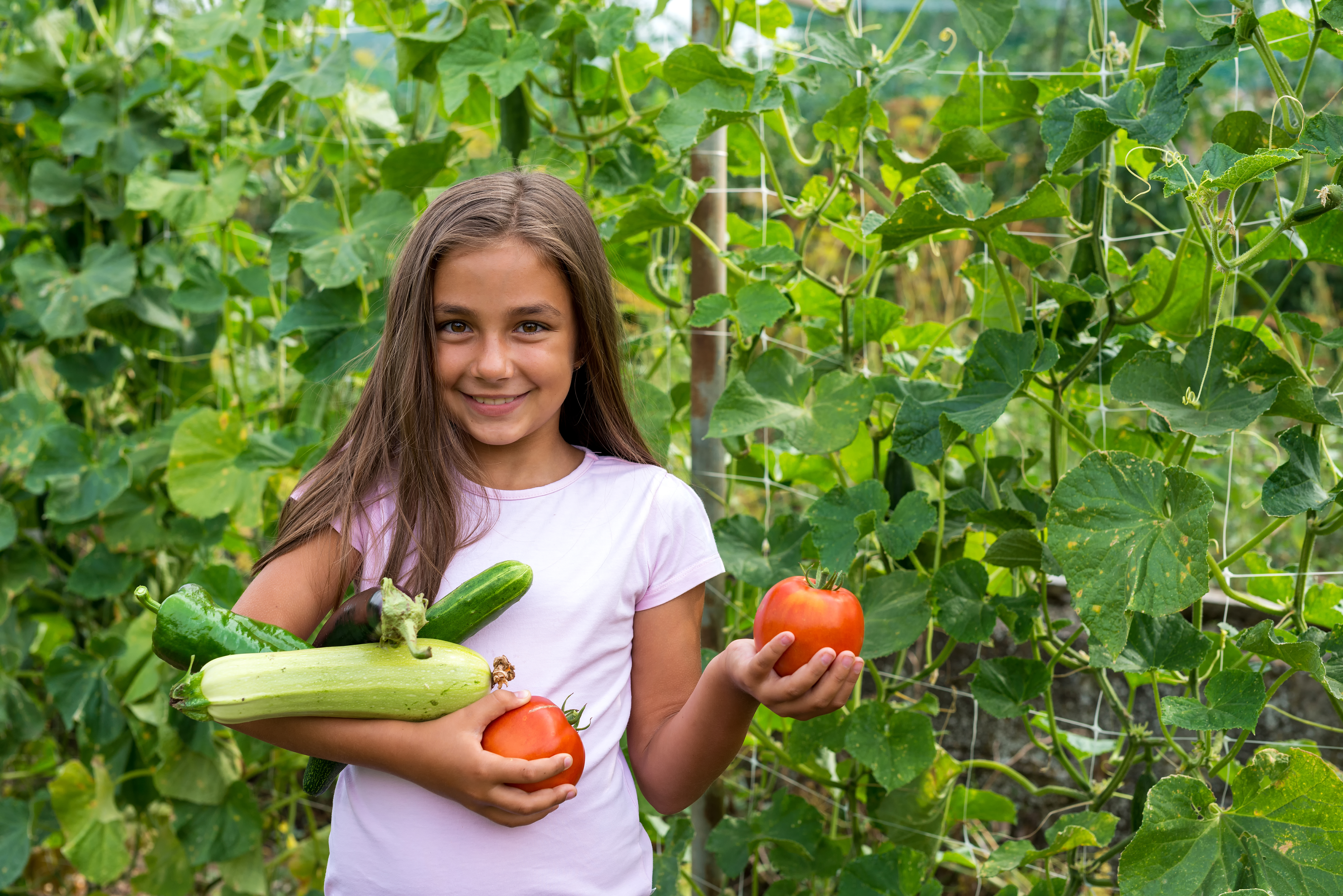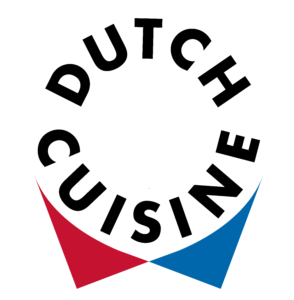Willen wij de komende generaties gezond houden en een leefbare aarde garanderen, dan is een actieve en gefundeerde grondhouding gewenst, te beginnen in het onderwijs. De huidige studenten op de koksopleidingen zijn de toekomstige change-agents. Deze chefs van de toekomst vormen de eerste primaire doelgroep binnen het onderwijs waar Dutch Cuisine zich op richt. Het educatie programma van Dutch Cuisine heeft tot doel om het gedachtengoed van Dutch Cuisine uit te dragen en onderwijsmodules te ontwikkelen binnen het basis-, voortgezet-, MBO-, HBO- e n WO-onderwijs.
Implementatie van duurzaamheid in koksopleidingen
In opdracht van DuurzaamDoor (Rijksdienst voor ondernemend Nederland) voerde Dutch Cuisine in 2015 en 2016 het onderzoek naar implementatie van duurzaamheid in de koksopleidingen in Nederland uit. De resultaten zijn gepubliceerd in het rapport: Onderzoek naar implementatie van duurzaamheid in de koksopleidingen van Nederland. In dezelfde periode vonden diverse inspiratieworkshops voor horeca-docenten plaats.
Dutch Cuisine in het onderwijs
De horeca-opleidingen van het Koning Willem I College in Den Bosch behoren al jaren tot de beste in Nederland. Het koksonderwijs is gebaseerd op de vijf principes van Dutch Cuisine, die voortkomen uit het gedachtegoed van SVH Meesterkok en Dutch Cuisine Chef Albert Kooy. Ook de koksopleidingen van ROC Friese Poort zijn op deze uitgangspunten gebaseerd, net als het mbo-hbo leerbedrijf Stones in Emmen. In het najaar van 2017 starten het Koning Willem I College en het ROC Friese Poort de niveau 4-opleiding ‘Gespecialiseerd kok | Dutch Cuisine’. Een bbl (beroepsbegeleidende leerweg)-opleiding gericht op de toekomst van en voor koks. Een nieuw hoogtepunt van de opmars van Dutch Cuisine in het onderwijs. Over de opmars van Dutch Cuisine in het Nederlandse koksonderwijs verscheen een artikel op Misset Horeca.
Smaaklessen
Proeven, ruiken, horen, voelen en kijken: met al hun zintuigen verkennen kinderen het dagelijkse eten! ‘Smaaklessen’ is een uniek lesprogramma over eten en smaak voor groep 1 t/m 8 van de basisschool in de gemeente Ede. Het beleven van voedsel staat centraal. Door Smaaklessen krijgen kinderen flink wat kennis over eten én ervaring met gezond en duurzaam kiezen. Samen met Green Deal partners zoals de gemeente Ede, WUR en Koppert Cress wordt een vernieuwd programma ontwikkeld. Kijk voor meer informatie op www.smaaklessen.nl.



